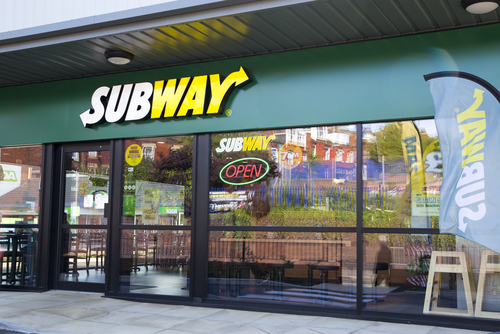
This is another post for my readers who are interested in starting a business. In a previous post, I shared thoughts on how to become an affiliate marketer using Amazon. In this post, I’m focusing on buying a franchise. I use Subway as an example, but the advice holds for any franchise you maybe considering.
If you’re interested in venturing into the franchise business, but you don’t have a particular brand in mind yet, you may want to give the Subway franchise serious consideration. Founded in 1965, Subway has grown steadily and is currently one of the biggest franchises for fast food restaurants worldwide. Subway is famous for its well-crafted salads and sandwiches. Here are the things you should evaluate before you decide to invest in the Subway franchise:
Franchising and Licensing Fees
In terms of franchising fees, Subway is one of the cheapest food establishments to franchise in the country. The franchise cost for Subway is $15,000. However, this may be reduced depending on various considerations, such as the following:
- US veterans who are interested in purchasing this franchise may qualify for a discounted franchising fee.
- For newcomers in the franchising business, a good portion of the fee—which can go up to $10,000—may be applied for financing in a special loan program, granted that a Subway franchise is the first franchise business in their name.
- Satellite Subway locations may also be operated by owners at a much lower rate of $1,000. Satellite locations are off-site stores that are supported by a full-service Subway store in the same general location.
- Special considerations for reduced rates may likewise be made for school cafeteria locations, as well as gasoline service stations with multiple branches (at least 50) who agree to change their current sandwich brand to Subway at all gas station locations.
To get a clearer picture of the expenses you’ll have to be ready for, request for a cost analysis at franchiseknowhow.com.
Acquisition of Real Estate
As with any other physical business, a major part of the establishment is its physical location. Your budget allocation for this would greatly depend on the specific area of operation, and whether your store property is leased or purchased. You also have to apply for additional permits and licenses in order to operate a commercial establishment in the said area.
As a prospective owner, scout ahead for possible areas for your Subway branch in order to get an idea of the budget preparations.
Construction Costs
Once the location and the size of your store are agreed upon, design and construction may begin. As with the real estate costs, construction expenses are one of the variable costs that will greatly depend on the area you’re working in. Assess your possible construction expenses before you finalize any investments. Consider as well the fees you’ll have to pay contractors and architects for the construction of your franchise.
Equipment Purchase and Lease from Subway
You may lease your store’s signage and kitchen equipment from Subway. This would incur a monthly cost on your end, together with a lease security deposit that would range from $7,500 to $15,000.
Marketing Costs
Prepare as well for the franchise’s monthly marketing service fee. Subway management charges a 4.5% fee per month to cover for the development of marketing strategies and materials in order to promote Subway’s products. This fee is based on monthly sales figures of the specific store.
Royalty Fees
When you make your computations and projections, factor in the royalty fees or ongoing franchise fees. These will be deducted from your store’s monthly sales. Subway has a standard 8% monthly royalty fee, which is based on actual sales figures.
Financial Requirements of the Franchisee
Prior to getting a franchise deal, you should be able to meet a set of financial requirements. For starters, a net worth of $80,000 to $300,000, and liquid cash assets of $30,000 to $90,000 are required. These ensure that you as the franchisee will have the necessary headroom to manage delays in generating actual income during the early stages of your business. These criteria also ensure that you have the extra funds for unexpected expenses.
Other Startup Expenses
List other possible fees you’ll have to pay for starting your franchise. You’ll have to allot funds for training expenses for your employees and crews, logistics and freight costs, as well as opening inventory and supplies. These would all total to at least $10,000 to $20,000.
Profit Opportunity for Your Subway Franchise
After having considered all the potential costs, factor in that the average Subway store in the US actually earns about $8,000 per week. If you have a high-traffic location such as the stores located in airports and terminals, weekly sales figures may go up to $15,000 per week. It will all depend on the area and market saturation, which you have to thoroughly research on prior to getting a franchising agreement.
With careful branch management on your end, it wouldn’t be difficult to maintain a 20% profit on a weekly basis. Moreover, for your franchising business startup, operating one or two branches may be profitable enough to supply you with a decent income, especially if you manage your stores efficiently.
Opportunities for profit will increase greatly if you open and operate more Subway stores, as the risks for losses and inconsistencies are spread out to a larger market.
Conclusion
If you want to enter the franchising business, there is a wide variety of brands you can go for. Subway is one of the top franchise brands in the worldwide market and has always maintained a solid reputation since its foundation over 50 years ago. Weigh your costs and possible profits well as part of preparing to acquire your very own Subway franchise.

Speak Your Mind